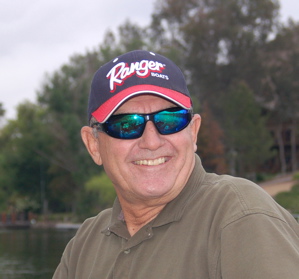 Because I work for one of them—a bass tournament organization—it’s possible this could sound self-serving. But recently, word trickled down to my desk that some of the efforts put forth to minimize participant expenses have been assailed as “taking a step backwards.”
Because I work for one of them—a bass tournament organization—it’s possible this could sound self-serving. But recently, word trickled down to my desk that some of the efforts put forth to minimize participant expenses have been assailed as “taking a step backwards.”
I have to tell you, those are the words of someone or several someones who have not read their annual stock reports, 401K quarterly statement, or heck, haven’t noticed the number of foreclosed homes on their street!
There isn’t a tournament organization out there that has not made some kind of attempt to make their circuits either more accommodating or more convenient—within the realm of their individual business plans.
Does that mean everybody’s new formula is going to succeed? We don’t know for sure. In my club days, the early 1970’s, the price of oil suddenly quadrupled to 12 bucks a barrel—and a gallon of gas jumped up to more than 80 cents! You could wait an hour in a station to fill up—on odd or even numbered days!
I didn’t see that coming back then, and as little as two years ago, I confess, I didn’t see the price going up to $3 and more recently, past $4 a gallon. What I do see, is organizations trying to make the best of a difficult situation.
Upstate, for example, there is a competitor trying to meet the challenges. When I read about the pro team, semi-winter schedule for 100% Bass, I thought: There is an outfit trying to deal with the realities we face in California: a clogged tournament calendar and ever-rising expenses. Good for them.
Likewise, FLW, in terms of financial support the largest player in the West, reduced its format from four days to three in the Stren Series in an effort to ease the expense crunch all tournament fishermen are facing. In my view, that reduction seemed more commensurate with the rewards involved, given they have a competing circuit--with the same first name--right in the territory: FLW, the Series.
That’s not an attack, believe it or not, and here’s why. What is the one reality of pro tournaments in California and the West that is not the case in any other region of the nation?
There is no circuit of second-tier anglers. Typically, the best tend to fish them all.
From the days of U.S. Bass, to Redman, to Western Bass, to the Bassmasters and all the way to WON BASS and the FLW-whatever series, you look at the list of players and it’s mostly the same guys. And it’s always the top guys.
The only issue for our territory is those fishermen continue make up a big percentage of the total number of pro tournament anglers, so every organization is catering to that elite group. Unfortunately, like the proverbial turnip, you can only squeeze so much out them in terms of time, entry fees and expenses.
Bass groups have tried several ways and are looking to find new ways to entice anglers (team and pro) to participate in their scheduled events. Yet, realistically, business issues take over when sponsors need to justify their participation and circuit support. Outside of those organizations that only require a cell phone and website to operate, most have some overhead or financial/product backers that must be satisfied to stay in business.
On the pro side, such efforts are a bit more apparent. No one has done more to promote its boat sponsor—Ranger—than FLW for 2009. Next year’s $50,000 bonus to Ranger-owning winners is a chunk. How it will affect participation of non-Ranger owners, or even Ranger owners who didn’t typically run a brand new rig every five years, remains to be seen, but it most certainly is a bold move in support of a sponsor.
Finally, I would mention the outfit that I work for. I once held the view, as many others may still, that “big” tournaments must be held on big waters. That program fits so well in Northern California where big (not to mention, high quality) fisheries are close to population hubs.
WON pulling its Tour events closer to home, but without the luxury of big waters (Havasu being the opener and the exception in the Southern Division) was no idea of mine. But it is a game move made to meet the challenging financial times that bass fishermen face in every aspect of their lives.
It may not be permanent, but it is certainly appropriate right now.
And if, by course of their convenient sites of Castaic (Greater Los Angeles) and Diamond Valley (Inland Empire to San Diego County), these events draw new, local people into the game--that can’t be a step backwards. And if sponsors can showcase their wares to a new group of participants as well as avid regulars, I promise those sponsors will not be dissatisfied.
It seems to me, everybody’s trying to make the best of things out there. Hopefully, across the board, fishermen will recognize that fact.


 Advertising
Advertising